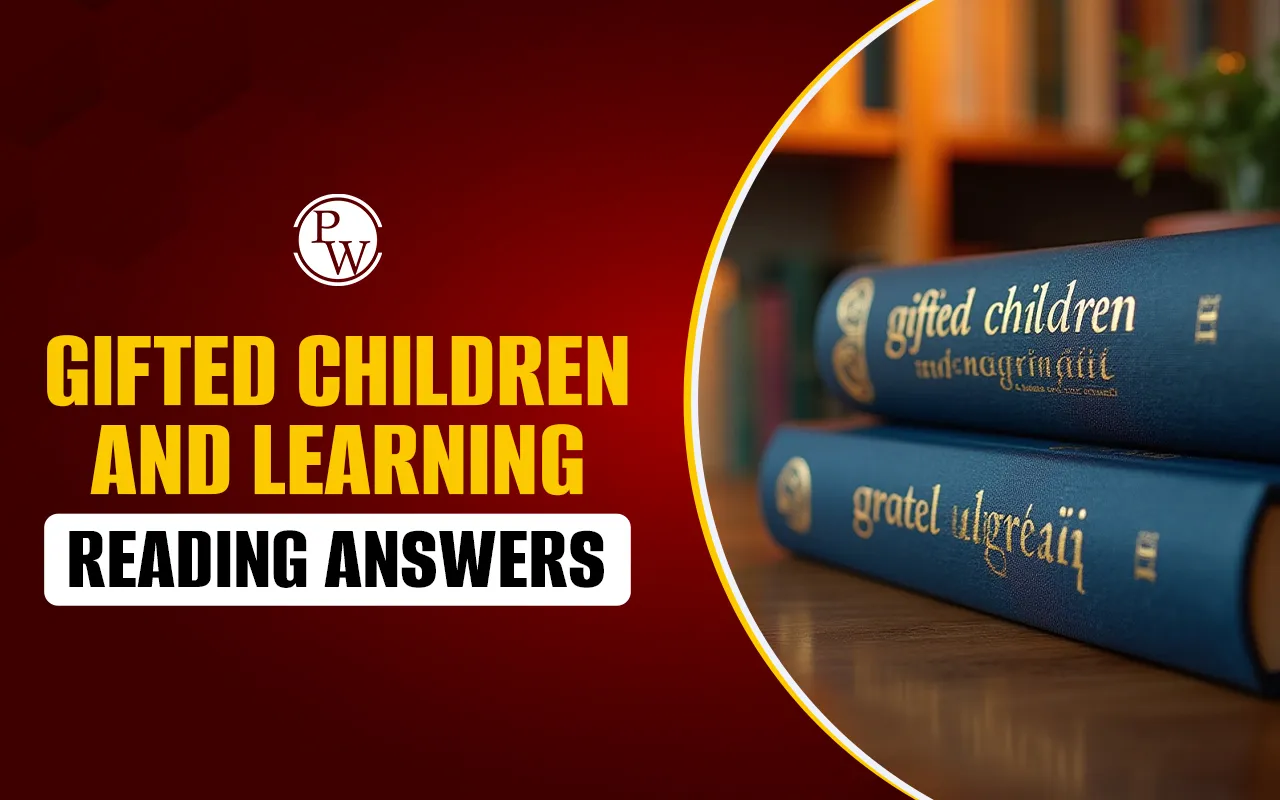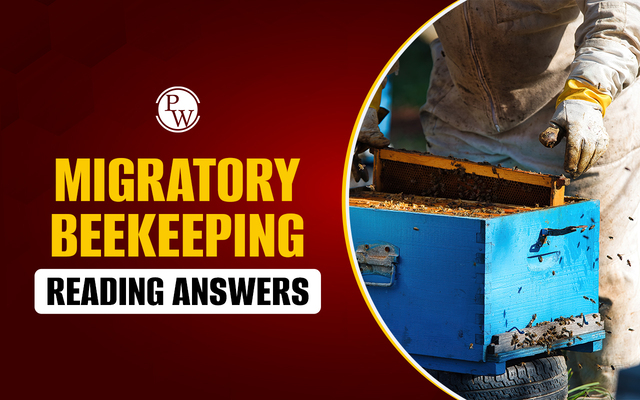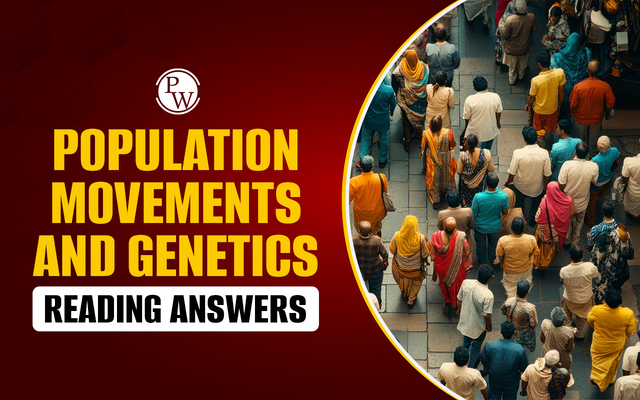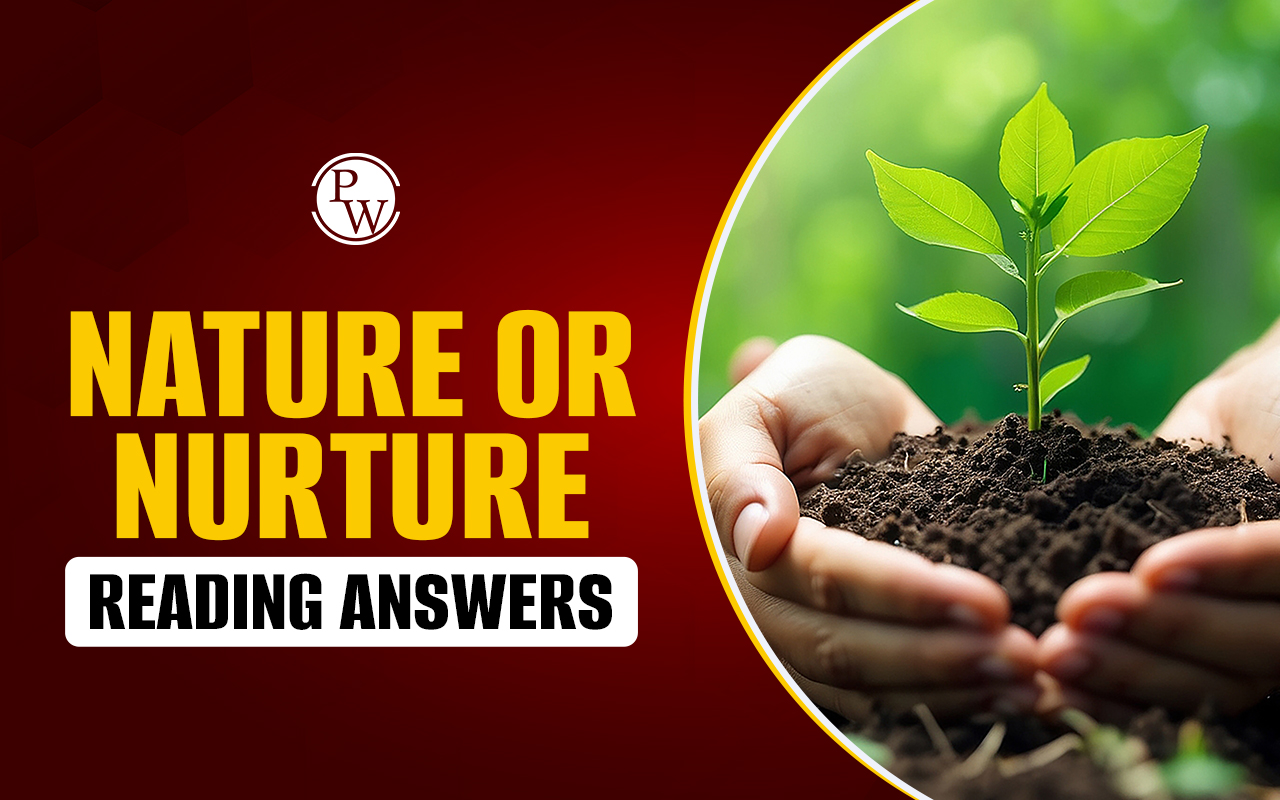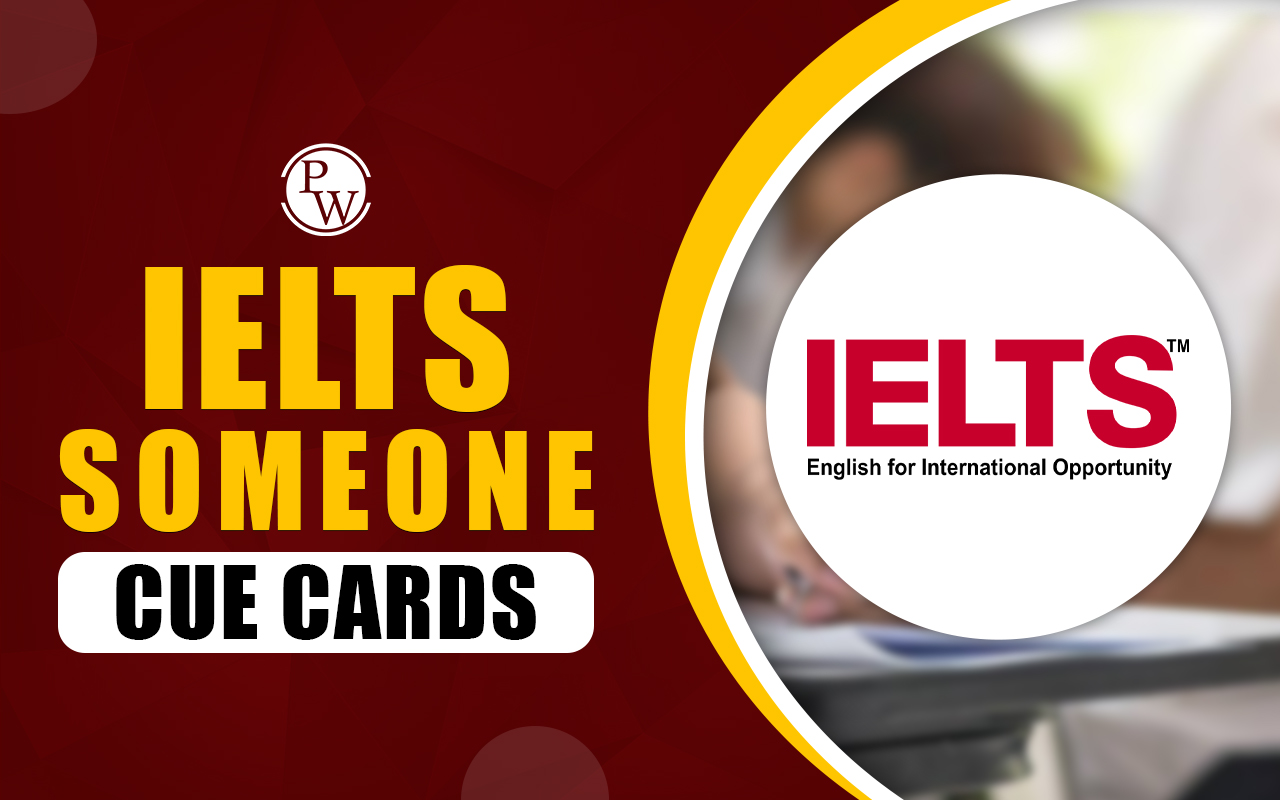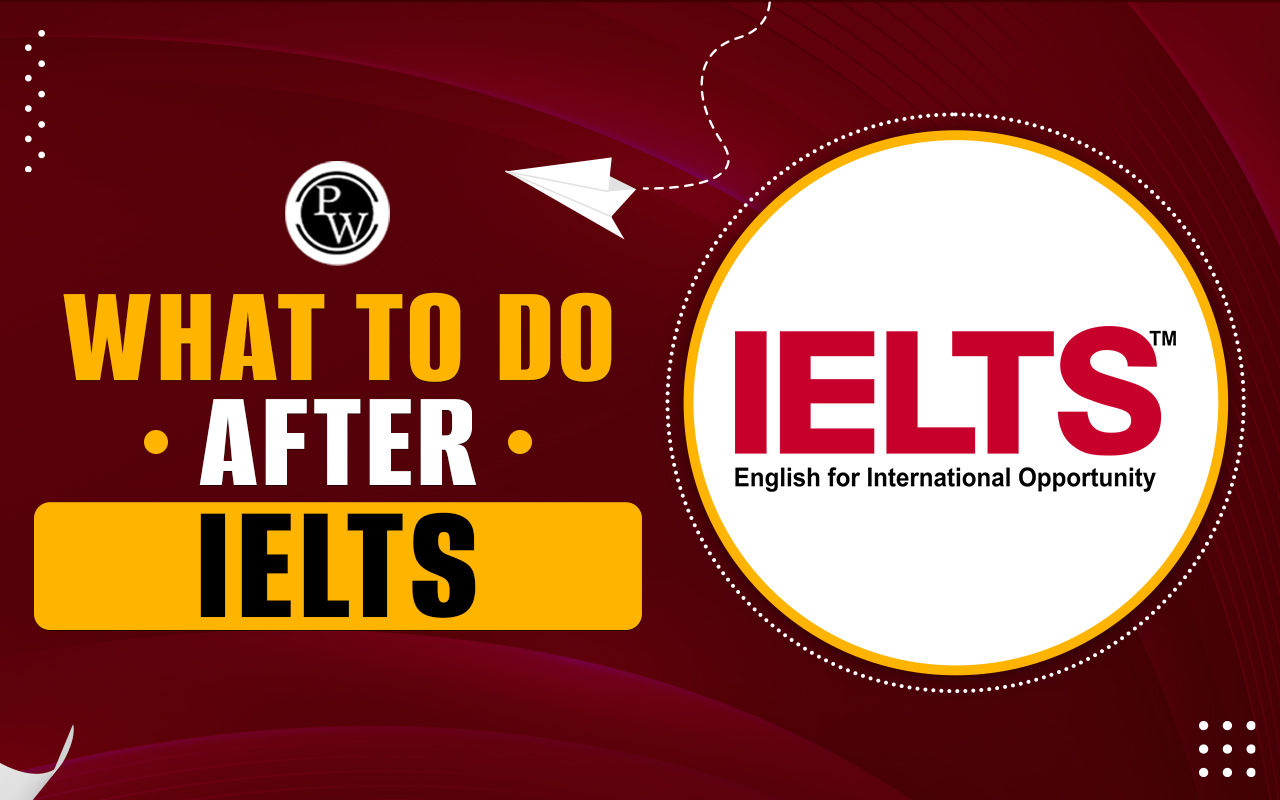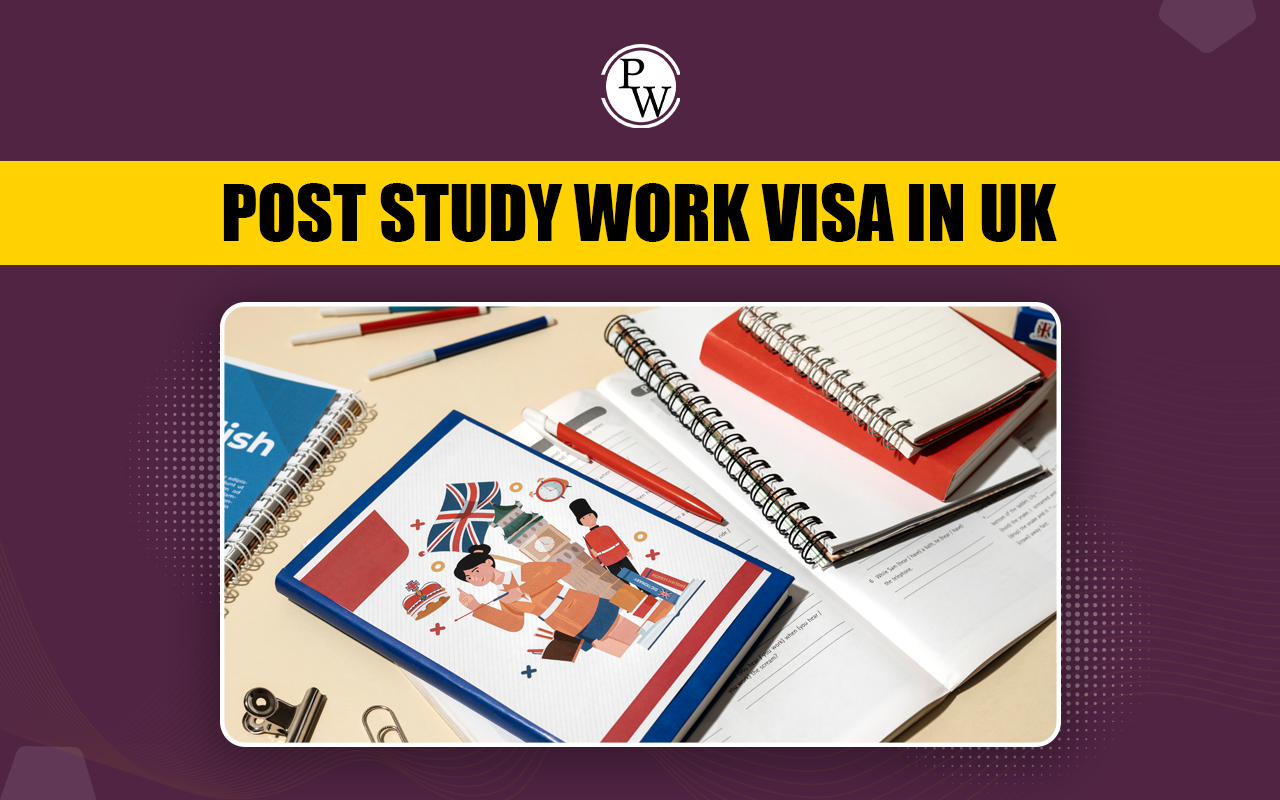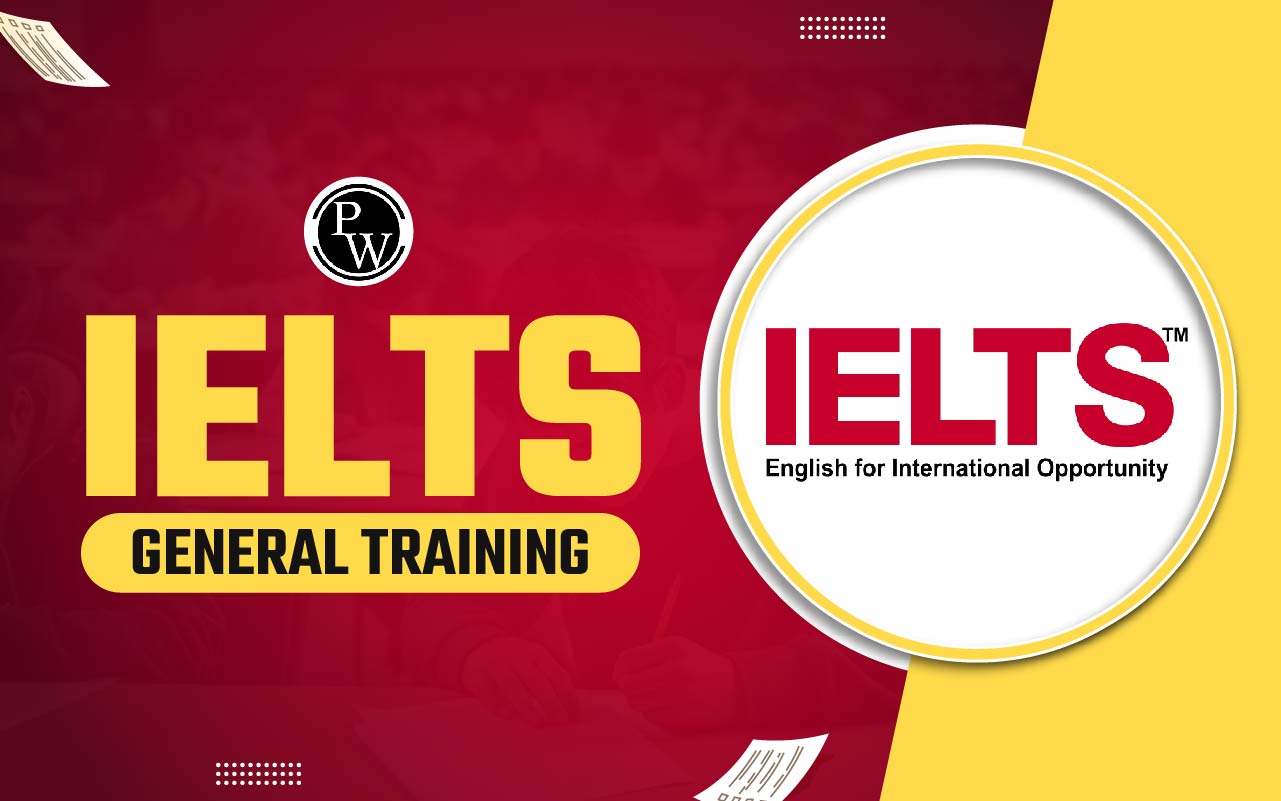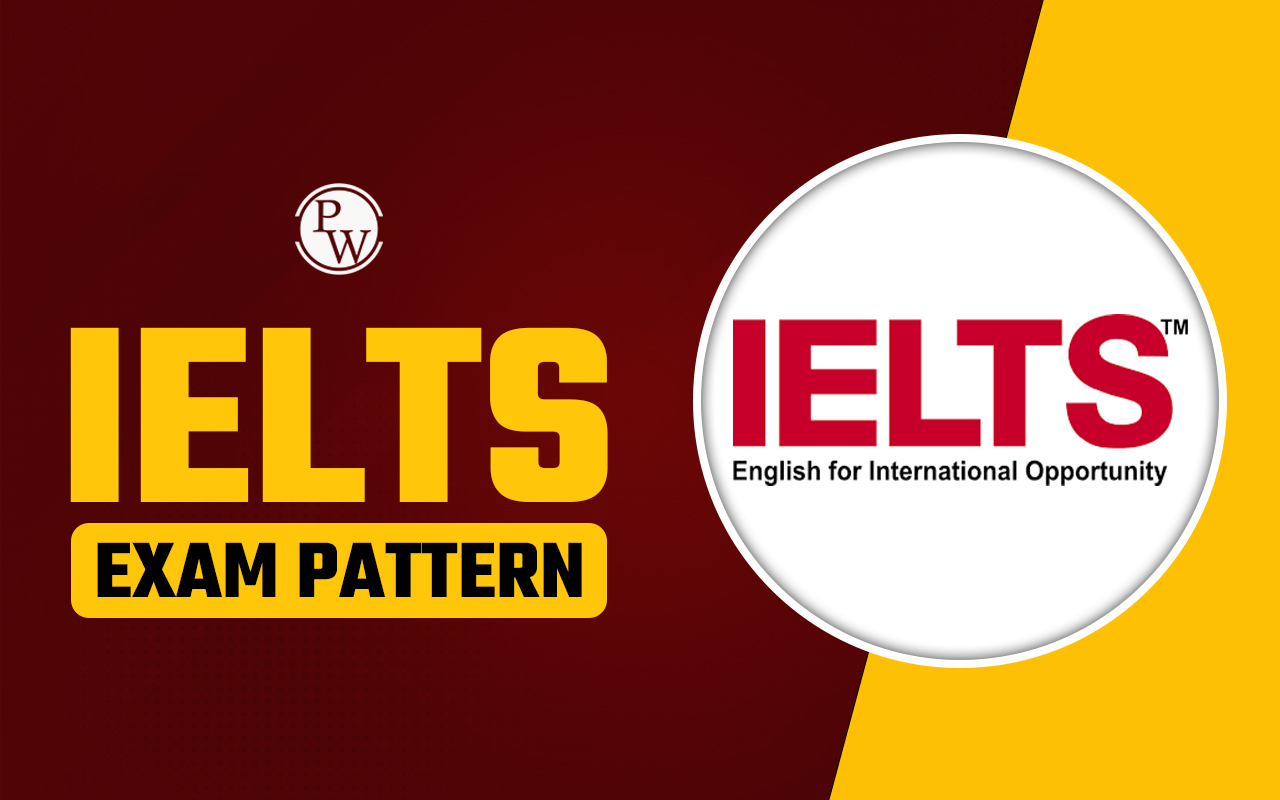
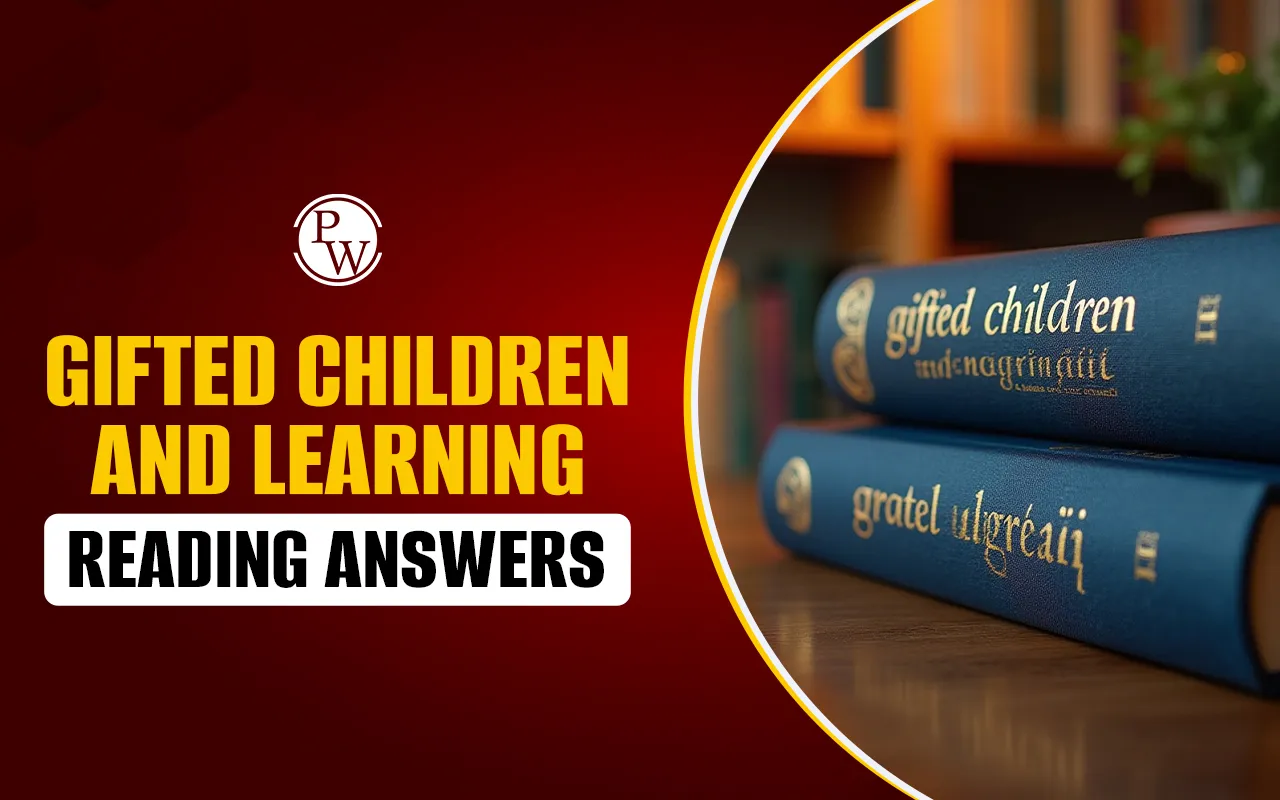
Gifted Children and Learning Reading Answers allows students to explore the unique intellectual and emotional ways that make them distinguish between gifted children from their peers. These children often score within the top 2 to 5% on IQ tests, indicating exceptional cognitive abilities.
Therefore, in the IELTS Academic Reading Test, this passage has been included to make students understand and acknowledge this uniqueness. So, candidates willing to enhance their IELTS Academic reading test score must go through the provided Gifted Children and Learning Reading answer passage.
Gifted Children and Learning Reading Passage
Provided here is the Gifted Children and Learning Reading answer passage that candidates can refer to for practice. The entire passage has been created to allow aspirants to understand the reading and boost their problem-solving skills.
Gifted Children and Learning Reading Passage
A 'Internationally, giftedness is often established by a score on a general intelligence test, commonly known as an IQ test, that surpasses a predefined cutoff criterion, which is typically in the top 2 to 5%. The educational contexts in which children grow have an impact on their IQ scores and how intelligence is utilised. When comparing children's IQ scores with their home educational provision, for example, a substantial positive link was identified (Freeman, 2010). In terms of reported verbal contacts with parents, the quantity of books and activities in the house, and so on, the quality of a child's educational assistance improves as their IQ grows, especially when it approaches 130. IQ tests are, to some degree, indicators of current accomplishment based on age norms since they are significantly impacted by what a kid has learnt; that is, how effectively children have learned to manipulate their knowledge and competence within the constraints of the exam. The vocabulary element, for example, necessitates hearing the terms. IQ tests, on the other hand, are incapable of distinguishing between learning and thinking processes or predicting creativity.
B In the lack of proper backing, excellence cannot develop. To attain an extraordinarily high level in any profession, highly talented youngsters need learning materials and rigorous, concentrated training, as well as encouragement to follow their aspirations. There seems to be a fundamental difference between intellectually talented people' cognitive processes and those of pupils of ordinary intelligence or older age, for whom external teacher control typically compensates for a lack of internal regulation. To attain optimum self-regulation, all children may be helped to discover their individual learning styles - metacognition - which will include skills for planning, monitoring, assessing, and selecting what to study. Children should be guided to have emotional awareness related with the subject to be learnt, such as interest or confidence, since emotional awareness is a component of metacognition.
C High achievers employ self-regulatory learning processes more often and successfully than poor achievers, and they can adapt these talents to new activities more easily. Some youngsters exhibit this inclination to such an extent that they seem to be talented in some areas. The instructor's issue was clearly summarised in a review of studies on the mental process of talented children (Shore and Kanevsky, 1993): 'If they [the gifted] just think more rapidly, then we should teach more fast.' If they make fewer mistakes, we can decrease the practice time in half. This is clearly not totally right; learning and teaching methods must be modified to accommodate for the diverse ways in which people think.
D Talented students, on the other hand, need some direction from their professors in order to study independently. Teachers who "overdirect" their students, on the other hand, may limit their students' learning autonomy. Although 'Spoon-feeding' may result in very high test marks, it does not necessarily result in similarly extraordinary life success. Over-reliance on instructors may lead to a loss of independence and ambition to learn. Encouragement of students to reflect on their own learning and thinking, on the other hand, increases students' self-regulation. It may be as easy as asking a tiny kid, "What have you learned today?" to recognise what they are doing. Given that one of the primary purposes of education is to shift control of learning from instructors to students, enhancing students' learning-to-learn strategies should be a substantial effect of the school experience, particularly for the most gifted kids. A range of novel strategies, such as child-initiated learning and ability-peer tutoring, may be advantageous. These strategies have been demonstrated to be especially beneficial for talented children who live in underprivileged settings.
E However, scientific advancement is not merely theoretical; knowledge is important to outstanding performance: those who are well-versed in a certain area outperform those who are not (Elshout, 1995). Due to the enormous demands of labour and time necessary for learning and practise, Simonton (1988) discovered that at a certain high level, attributes such as independence seemed to contribute more to reaching the greatest levels of competence than intellectual talents. Creativity may be characterised as skill mixed with a strong desire to succeed (Weisberg, 1993).
F Finally, the emotions of both the learner and important others have an influence on learning. Positive emotions foster the creative parts of earning, but negative emotions constrain them. Fear, for example, may inhibit the development of curiosity, which is essential for scientific growth since it encourages problem-solving behaviour. In her research of emotion and learning in children with high IQs and high levels of success, Boekaerts (1991) revealed that emotional energy may be used. They were naturally interested, but they also wanted to control their surroundings, increase their learning efficiency, and expand their own learning resources.
IELTS Gifted Children and Learning Reading Sample Questions
This section provides sample questions designed to help IELTS candidates practice reading comprehension on the topic of gifted children and learning. The questions focus on critical analysis, understanding key ideas, and applying reading strategies to improve accuracy in answering typical IELTS question types.
Gifted Children and Learning Multiple Choice Questions (MCQs)
1. According to the passage, how is giftedness internationally identified?
A) By creative achievements in school
B) By scoring in the top 2 to 5% on IQ tests
C) By teachers’ recommendations only
D) By participation in extracurricular activities
2. What does the passage suggest about IQ tests?
A) They can distinguish between learning and thinking
B) They are influenced by educational context
C) They accurately predict creativity
D) They are unrelated to a child’s home environment
Gifted Children and Learning True / False / Not Given Questions
Write True, False, or Not Given for the following statements:
3. Gifted children always learn better when teachers provide detailed instructions.
4. Emotional awareness is considered a part of metacognition.
5. Over-reliance on instructors can limit gifted children’s motivation.
6. According to the passage, creativity is solely a result of intellectual talent.
7. Positive emotions encourage curiosity and problem-solving in gifted children.
Gifted Children and Learning Sentence Completion Questions
Complete the following sentences using NO MORE THAN THREE WORDS from the passage:
8. Gifted children’s educational support improves as their IQ approaches __________.
9. The key to achieving optimum self-regulation in children is discovering their individual __________.
10. Teaching methods should be adapted to accommodate the __________ ways people think.
11. The passage states that “spoon-feeding” may lead to high test marks but not necessarily to __________.
12. Creativity is described as a combination of skill and a strong __________ to succeed.
Gifted Children and Learning Matching Information Questions
Match the following researchers with their findings or opinions as mentioned in the passage:
13. Freeman
14. Shore and Kanevsky
15. Simonton
16. Boekaerts
17. Weisberg
A) Emotional energy can be used effectively by gifted children
B) IQ scores positively correlate with home educational provisions
C) Creativity involves skill and strong motivation
D) Faster thinking alone does not mean teaching should be faster
E) Independence becomes more important than intellectual talent at the highest levels
Gifted Children and Learning Reading Answers
Explore detailed answers and explanations related to the IELTS reading passage on gifted children and learning. This section clarifies important concepts such as IQ testing, self-regulation, and educational strategies, helping candidates enhance their comprehension and prepare effectively for the IELTS reading section.
| IELTS Gifted Children and Learning Reading Answers | |
| Question No. | Answer |
| Multiple Choice Questions (MCQs) | |
| 1 | B) By scoring in the top 2 to 5% on IQ tests |
| 2 | B) They are influenced by educational context |
| True / False / Not Given | |
| 3 | FALSE |
| 4 | TRUE |
| 5 | TRUE |
| 6 | FALSE |
| 7 | TRUE |
| Sentence Completion | |
| 8 | 130 |
| 9 | learning styles |
| 10 | diverse |
| 11 | extraordinary life success |
| 12 | desire |
| Matching Information | |
| 13 | B) IQ scores positively correlate with home educational provisions |
| 14 | D) Faster thinking alone does not mean teaching should be faster |
| 15 | E) Independence becomes more important than intellectual talent at the highest levels |
| 16 | A) Emotional energy can be used effectively by gifted children |
| 17 | E |
Guidance to PW IELTS Prep
IELTS Online Courses is a great initiative Physics Wallah took to help IELTS aspirants better prepare for the exam. Follow our below pages to learn more about the IELTS exam.| What is IELTS Exam? | Documents Required for IELTS Registration |
| IELTS exam eligibility requirements | IELTS Exam Fees |
| IELTS test results | IELTS Exam Pattern |
Gifted Children and Learning Reading Answers FAQs
How is giftedness commonly identified internationally?
Can IQ tests predict creativity?
What role does metacognition play in gifted childrens learning?
Why is teacher guidance still important for gifted children?
What social challenges do gifted children face?

